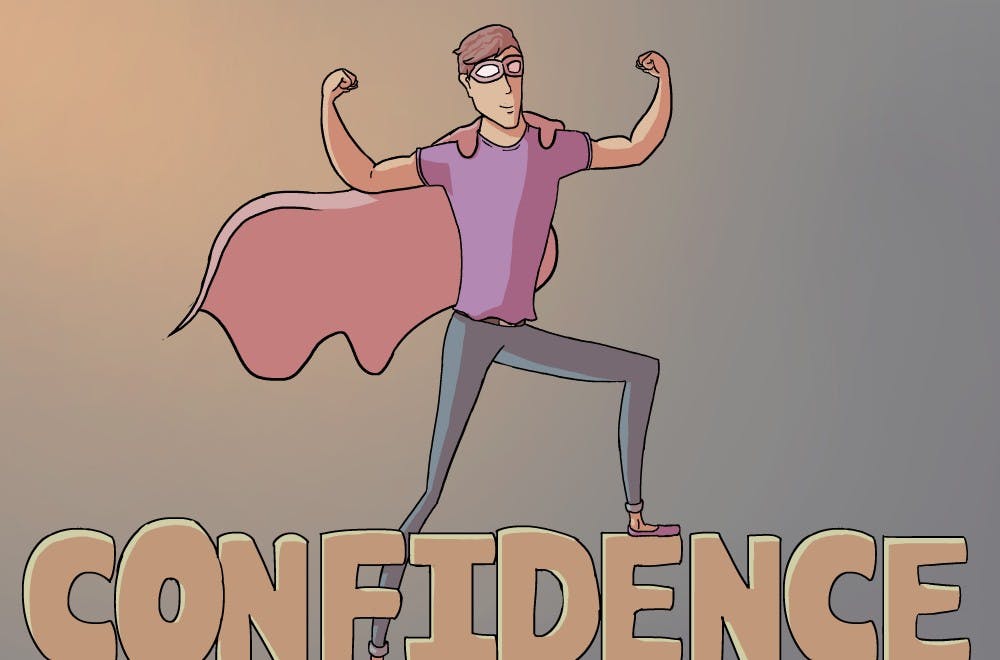ASU has a variety of people, of all shapes and sizes, yet it can be hard to stand out from the crowd. As we pursue professional careers, it is important to develop skills that will help us excel, not only for the sake of success but for our mental well-being.
We all see those people in class, leaning back with their hands behind their head. To some, this seems annoying and to others, it elicits admiration. However, whether we admit to it or not, there is no denying that we perceive these people as more powerful.
Specifically, a person’s body language is found to be linked to the level of confidence that person possesses, which seems natural, but we tend to underestimate how body language influences our perception of others; it makes up invisible interactions that shape our ideas about other individuals.
Psychologist and Harvard professor, Amy Cuddy, put it best in a TED Talk about power poses and body language’s effects on professional success: “We make sweeping judgments and inferences from body language, and those judgments can predict really meaningful life outcomes, like who we hire or promote, who we ask out on a date."
Cuddy conducted research to support this idea. In one study, she had certain students do a power pose in which they stood with their feet shoulder width apart, shoulders pushed back, and hands on their hips. She then instructed the students to putt a golf ball.
She did the same with another group, but she had them sit in a “powerless” pose beforehand, which entails sitting on a chair with shoulders hunched forward and head down. There was significant statistical evidence that those who did the power pose before putting performed better, getting the golf ball nearer to the hole.
Even the chemical makeup up your body responds to this change in body language. Cuddy’s studies also exhibited that by sitting or standing in one of the poses mentioned above, the subjects experienced changes in their testosterone and cortisol levels.
Cuddy’s studies were groundbreaking in that they suggested that a “fake it till you make it” idea is effective. In other words, by consciously altering your body language, you can actually feel more confident and powerful. Not only does your body language affect others perception of you, but it also influences your ideas about yourself, so what is the harm in doing so.
“A powerful type of body language is gesture, which is a gesticulation (primarily hands and arms) that embodies meaning,” Dr. Nicholas Duran, assistant Social and Behavioral Sciences professor, said. "Importantly, gesticulation primarily co-occurs with language. And it is not necessarily for the benefit of the listener, but for the benefit of the the speaker. In other words, gestures that accompany speech can ease cognitive processing and help with the speaker's comprehension and language production. What this all points to is that cognitive processes are facilitated by movement. You can say that our bodies help us think.”
This is especially applicable in college and in the professional world, where success is often directly proportional to our ability to network.
Why not strike a power pose before an interview or sit upright while speaking with a professor? The likelihood of that professor or employer remembering such a powerful presence increases significantly.
Not all people would agree with this idea, however. Some would argue that authenticity is far more favorable than an appearance of “faked” confidence
“I think it's important (to express confidence) — to an extent,” Duran said. “You can certainly fake the appearance of confidence, and you might get away with it for awhile — but people are pretty good at detecting fakes if you give them enough time and evidence. Better to develop a real confidence by developing expertise and being overly-prepared."
There is no harm in trying. Having less confidence reduces the possibility of successful social interactions and limits a person professionally. Unfortunate for introverts, this transition is not easy, but starting the day with a power pose or working on being engaged in every conversation is a start.
Reach the columnist at ghirneis@asu.edu or follow @ghirneise2 on Twitter.
Editor’s note: The opinions presented in this column are the author’s and do not imply any endorsement from The State Press or its editors.
Want to join the conversation? Send an email to opiniondesk.statepress@gmail.com. Keep letters under 300 words and be sure to include your university affiliation. Anonymity will not be granted.
Like The State Press on Facebook and follow @statepress on Twitter.




